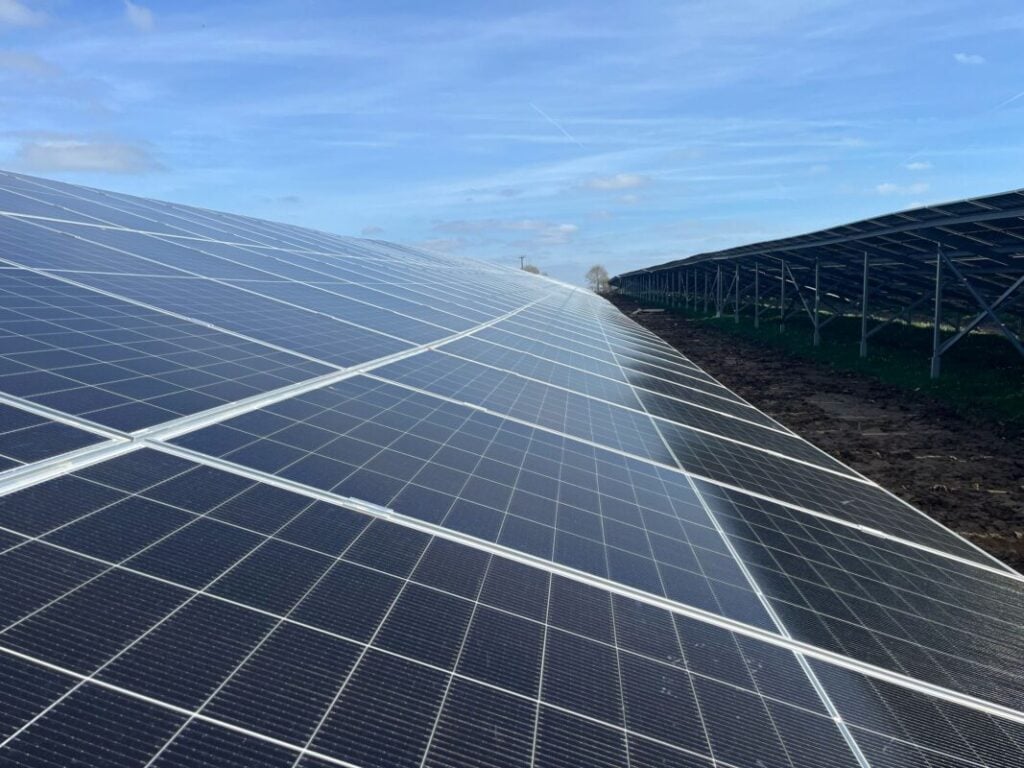
Renewable energy investor AMPYR Distributed Energy has made a major financing deal to support growth in the UK solar and battery energy storage system (BESS) sectors.
The £170 million facility was agreed with French finance major Crédit Agricole CIB, and is designed to support AMPYR’s continuing investment in commercial and industrial solar and BESS projects across the UK. The facility can be drawn upon for both construction and operational costs, and AMPYR claims it is among one of the largest agreed facilities of its kind in the UK commercial and industrial renewable energy market.
Commenting on the agreement, John Behan, CEO of AMPYR Distributed Energy, said the new funding will help the company accelerate its growth strategy and meet demand for onsite energy solutions.
Laurent Haik, co-head of auto and operating assets securitisation at Crédit Agricole CIB, added that the finance institution was happy to be supporting AMPYR Distributed Energy in its ambitions to grow its solar portfolio. Haik said the transaction is a “first of its kind”, as it combines the expertise of the bank’s project finance and securitisation teams and was structured by its newly built distributed generation franchise.
Since launching a little over a year ago, AMPYR Distributed Energy has contracted over 50MW of solar installations across the UK and formed several major partnerships. Significantly, in March of this year the company announced that it would match Great British Energy’s £180 million funding commitment for solar PV installations across public sector buildings, just a week after the government’s flagship energy company announced that it would spend £80 million to install solar PV on schools and £100 million for the same across NHS sites.
In a letter to energy secretary Ed Miliband and GB Energy chair Juergen Maier, Behan highlighted the role that private finance institutions can play in supplementing government funding for decarbonisation projects and advocating for a joint approach between the private and public sectors. This reflects the findings of a recent report from the Green Finance Institute (GFI) which suggested that limitations on the ability of schools to obtain private finance for decarbonisation works is hampering the education sector’s ability to decarbonise and meet the Department for Education’s (DfE) target to reduce emissions from schools by 75% before 2037.

